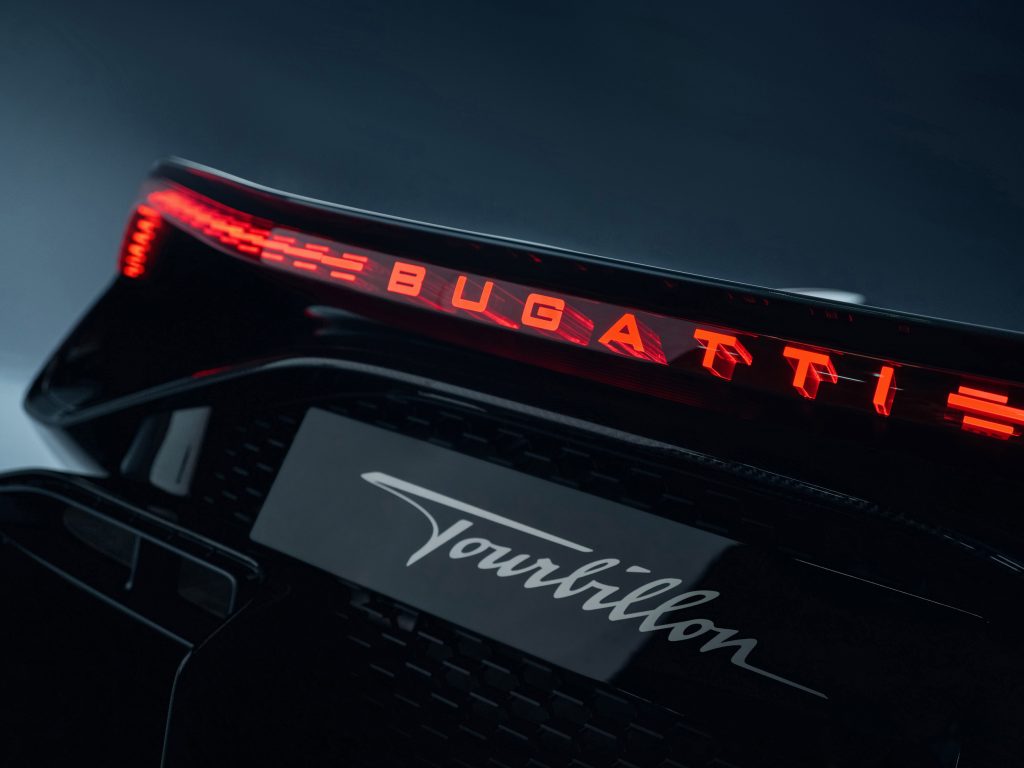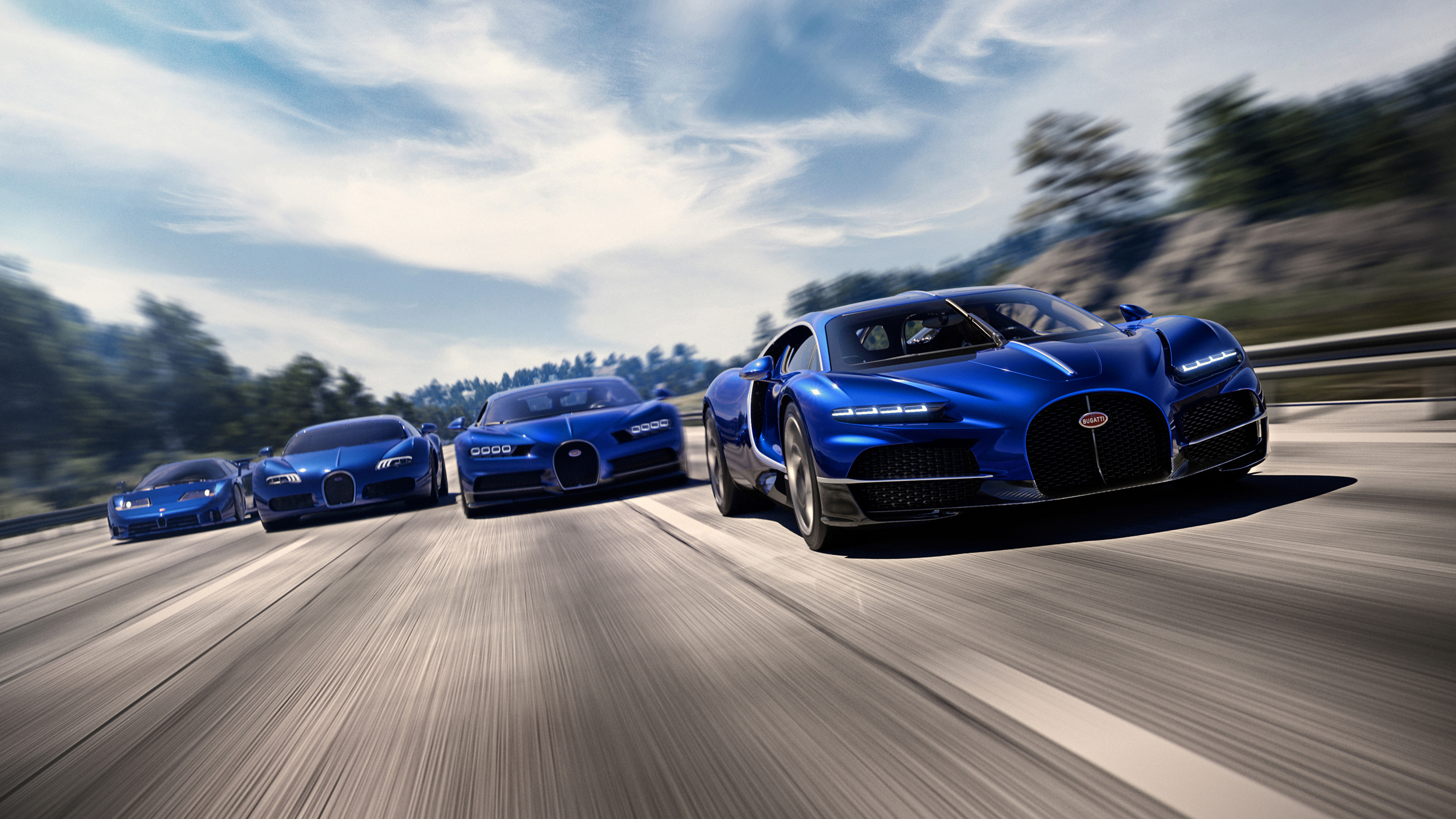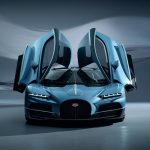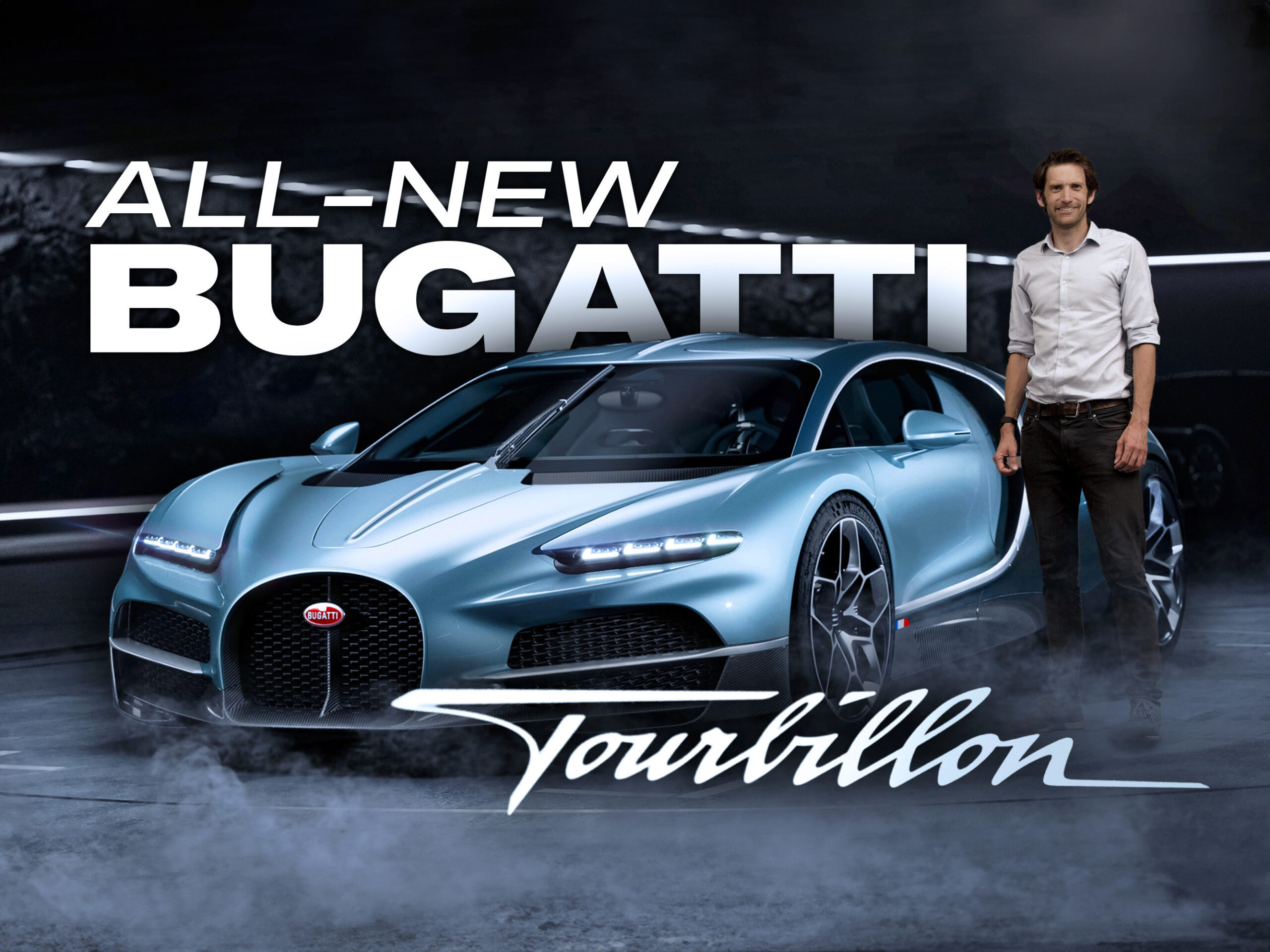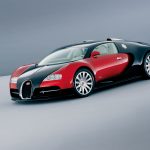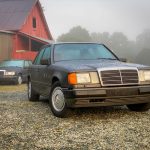Bugatti is closing the chapter on its W16 engine, and, while the brand is partially owned by EV specialist Rimac, its next offering is not going full-electric. Unveiled at Bugatti’s historic headquarters in Molsheim, France, the new Tourbillon debuted with a plug-in hybrid drivetrain built around a naturally-aspirated V-16 engine designed with help from Cosworth.
Breaking with Bugatti’s recent tradition of naming cars – Veyron, Chiron, and Divo – after race car drivers, the Tourbillon gets its name from a 223-year-old mechanism that offsets the effect gravity has on a watch – a technology that’s still used today.

“This sense of mechanical timelessness was a core part of the Tourbillon journey,” Bugatti explained.
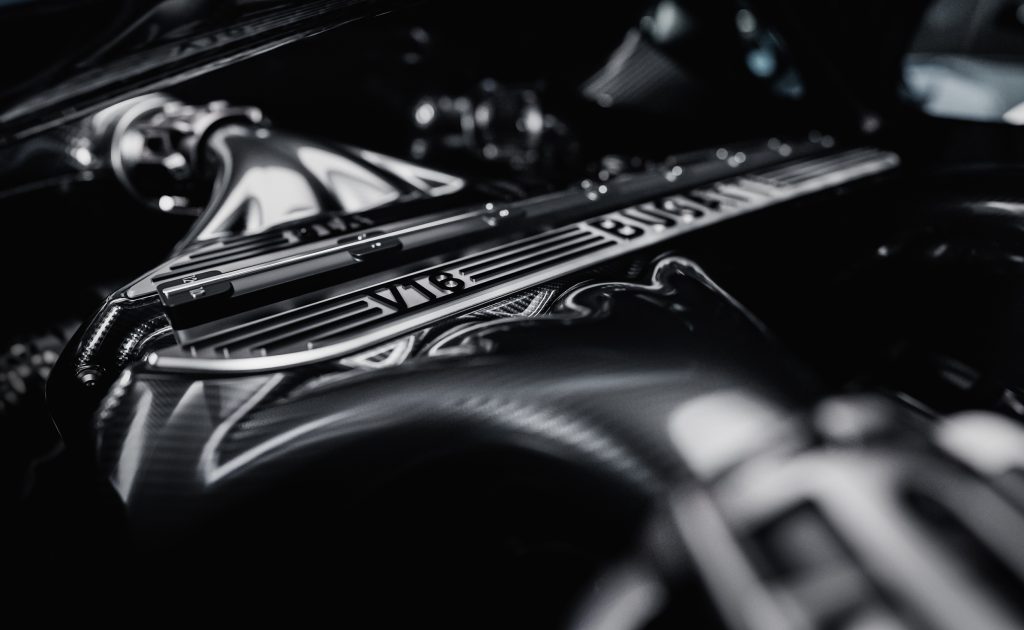
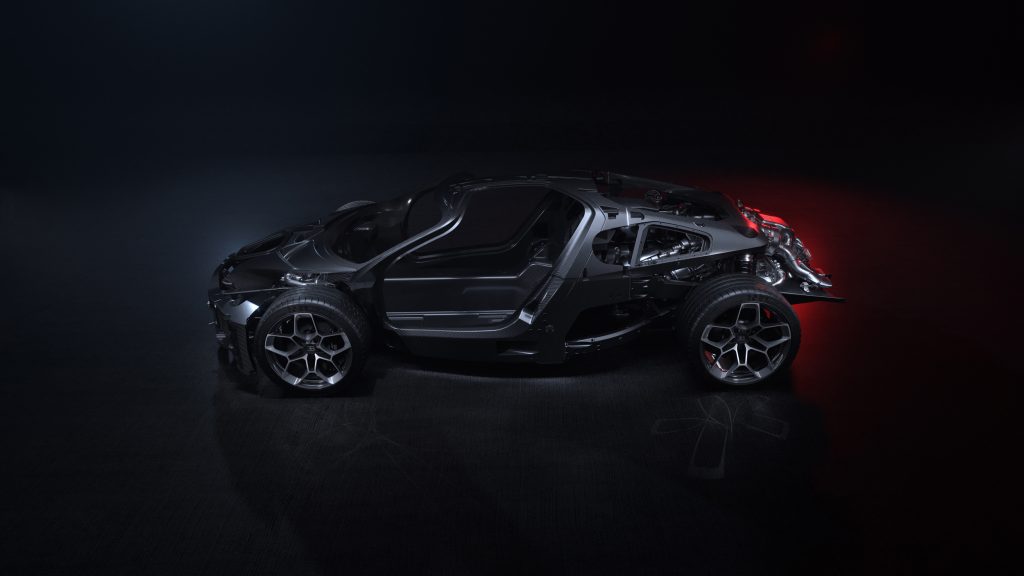
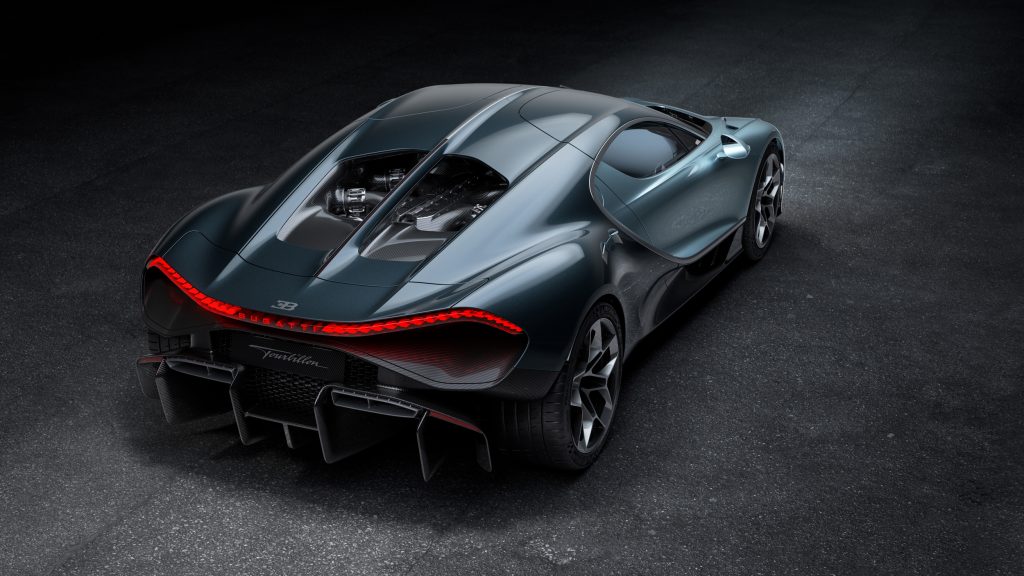
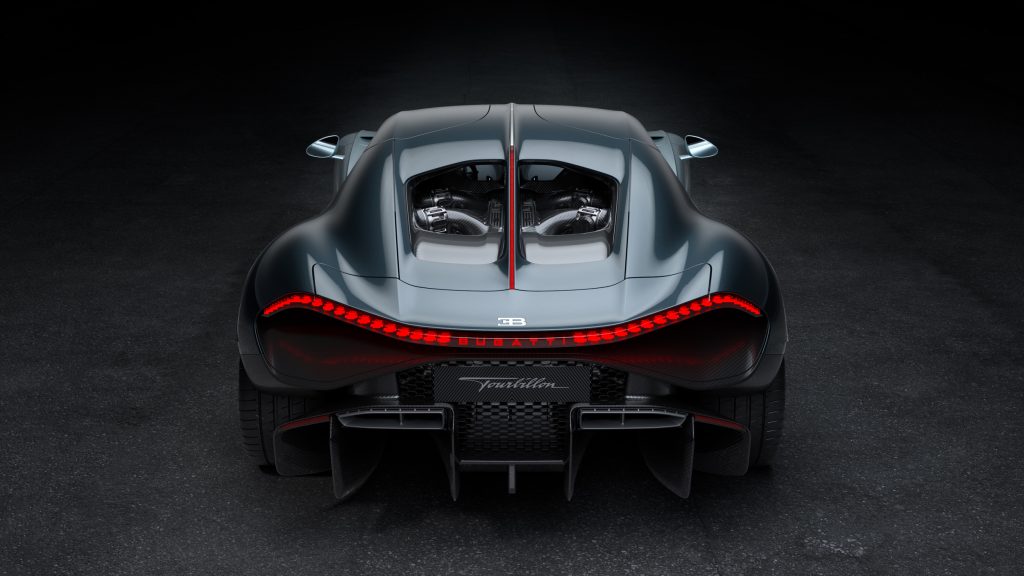
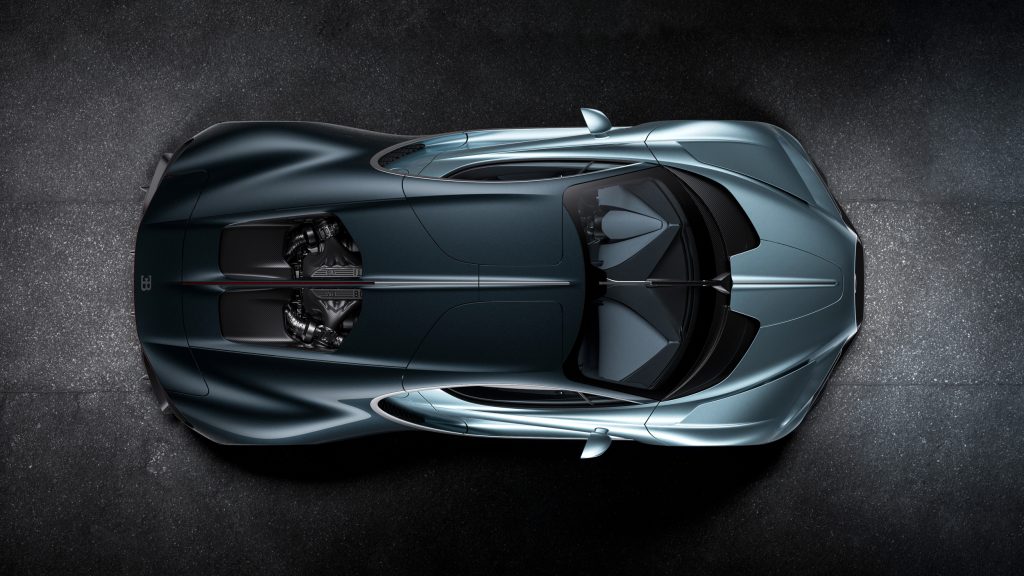
Indeed, the V16, in layout and cylinder count, ties the Tourbillon’s luxurious and powerful identity to a much earlier era of the automobile. Mid-mounted, the new, naturally-aspirated engine swells to 8.3 litres of displacement (the W16 it replaces was a quad-turbocharged 8.0-litre mill). The 9000rpm-capable engine produces 1000 brake horsepower – that’s before taking into account the electric motors this unit is paired with. As if to highlight the Tourbillon’s excess, seemingly every figure and dimension of this engine points to its hulking prowess: Its crankshaft is over three feet long, and the two heads employ a total of 64 valves to move air and exhaust. Perhaps the only normal figure in the drivetrain is the number of gears in the dual-clutch automatic transmission: Eight.
Electrification injects 800 additional horses for a total output of 1800 horsepower. Two electric motors are mounted on the front axle (one per wheel for true torque vectoring and all-wheel drive), a third electric motor resides on the rear axle, and the 25kWh battery pack that powers them is integrated into the space between and directly behind the passengers.
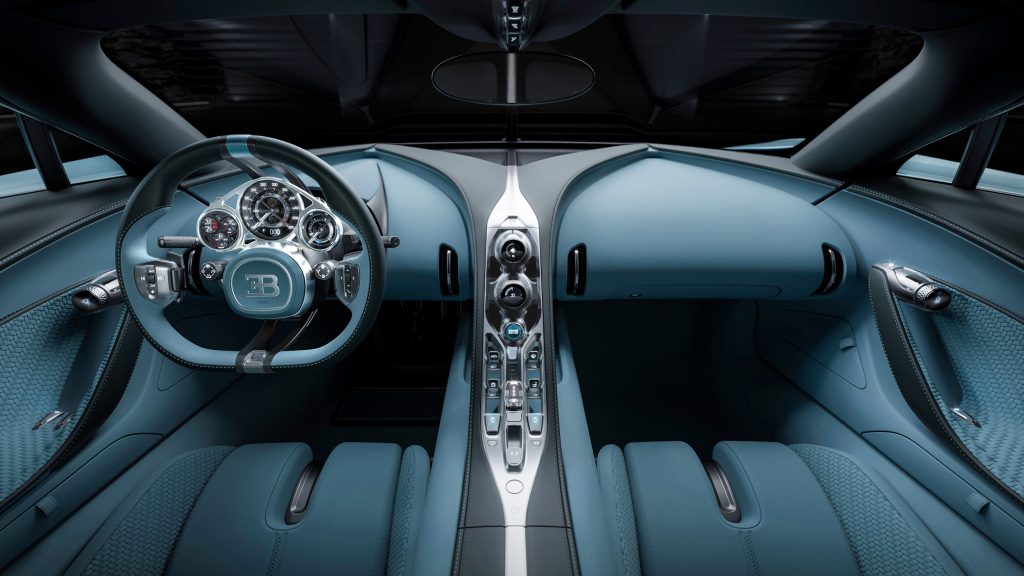
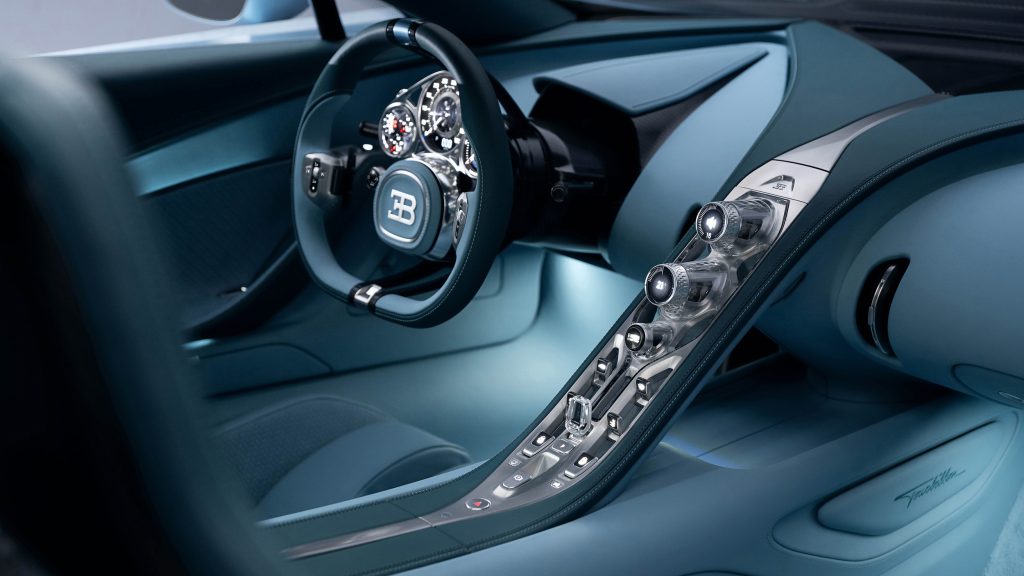
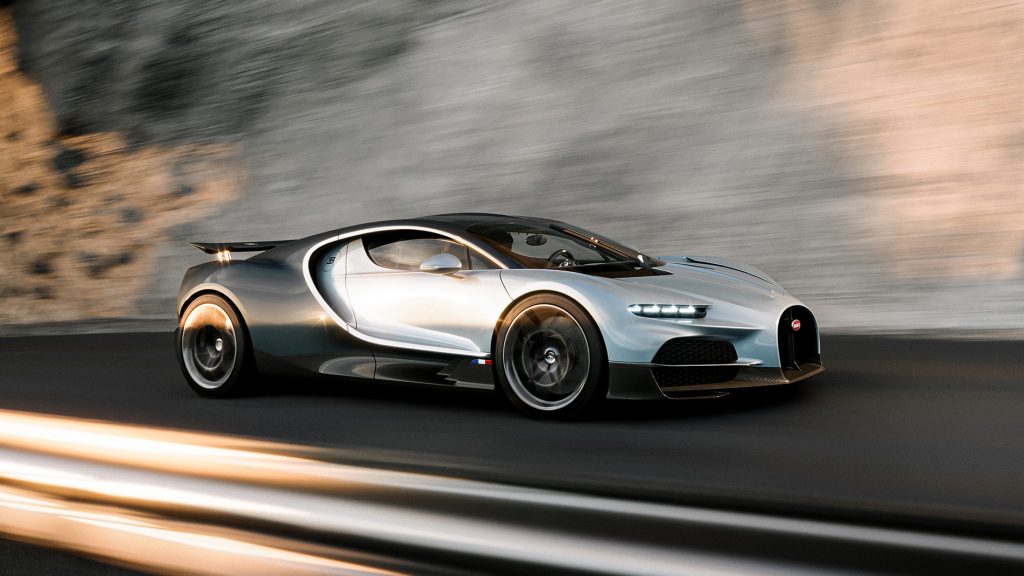
“The powertrain was perhaps the most important decision that we had to make, considering every option available to us: re-engineering the W16, going fully electric, or creating something entirely new,” explained Emilio Scervo, Bugatti’s chief technical officer. “Ultimately, we chose the hardest possible option, which was creating a powertrain from scratch and pairing it seamlessly with a complex system of e-motors. Our philosophy has been to take every single aspect of Chiron and elevate it.”
Bugatti shares that in two ticks of the second hand of your timepiece, the Tourbillon will reach 62mph, and the Tourbillon won’t stop accelerating till it reaches its 276mph top speed. These numbers, though, aren’t being as trumpeted with the same verve as with past Bugattis. That’s because the Tourbillon’s sibling, the Chiron Super Sport 300+, has a higher top end. Its cousin, the Rimac Nevera, will out-accelerate it. The Tourbillon, then, is more about the how and less about the actual numbers.
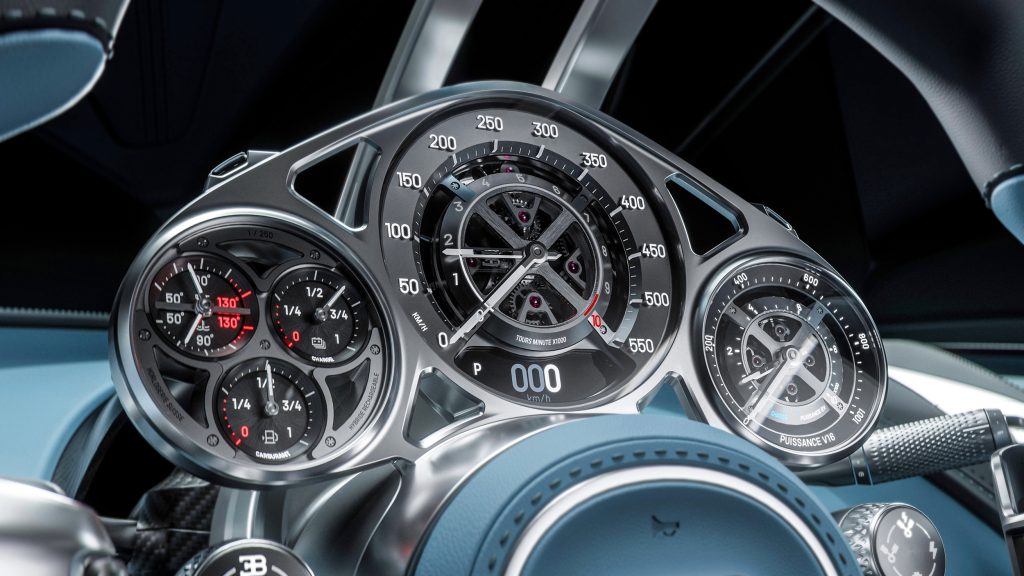
The French brand stresses it went to great lengths to make the Tourbillon about 91kg lighter than the roughly 2040kg Chiron – which is remarkable considering plug-in hybrid technology adds a great deal of heft. Bugatti hasn’t discovered a miracle formula for making lighter batteries: Instead, it had to offset the mass added by the system. A lack of turbos – remember, there were four on the Chiron – and their associated plumbing certainly helped. The company made an extensive effort on the rest of the car as well: The body is made with a type of carbon composite called T800, and 3D-printed aluminium parts in the suspension make the entire system about 45 per cent lighter than the Chiron’s. Brake-by-wire technology, in addition to allowing for additional computer-driven assists, also reduced weight.

Visually, the Tourbillon remains recognisable as a member of the Bugatti family tree. It’s low, wide, and characterised by a design that seemingly flows out of the horseshoe grille. Designers haven’t made significant changes to the proportions, and there aren’t a thousand different ways to package a massive drivetrain into a 250mph-plus car, but they added power-operated dihedral doors, gave the C-shaped Bugatti line a sharper curve, and lowered the roof line. All told, Bugatti shifted its design language in a more muscular direction without straying from its identity.
If screens are your thing, the Tourbillon isn’t your kind of hypercar. There is one, and it’s compatible with Apple CarPlay, but it’s hidden in the top part of the centre console until the driver summons it. Bugatti’s beef with touchscreens is that, like the iPod you listened to Blink 182 on in 2003, they don’t really age well.
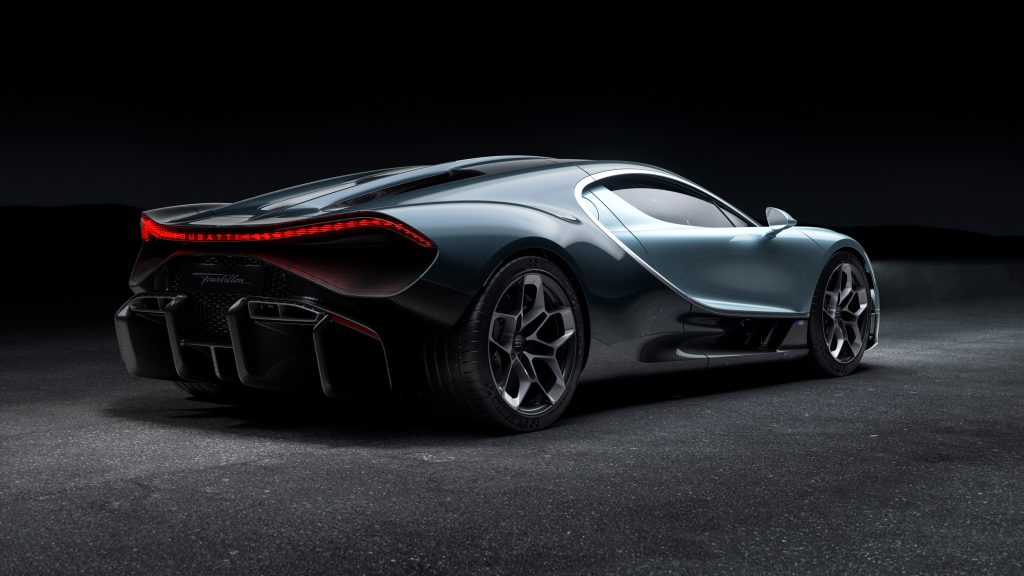
The two screens integrated into the Chiron’s instrument cluster are gone. Instead, in keeping with the timepiece theme, the Tourbillon gets an all-analog instrument cluster developed jointly by Bugatti and a Swiss watchmaker. It’s made with titanium, consists of over 600 parts, and features gemstones including sapphire and ruby. Check out the way it’s mounted: Set on the steering wheel itself so it’s always visible.
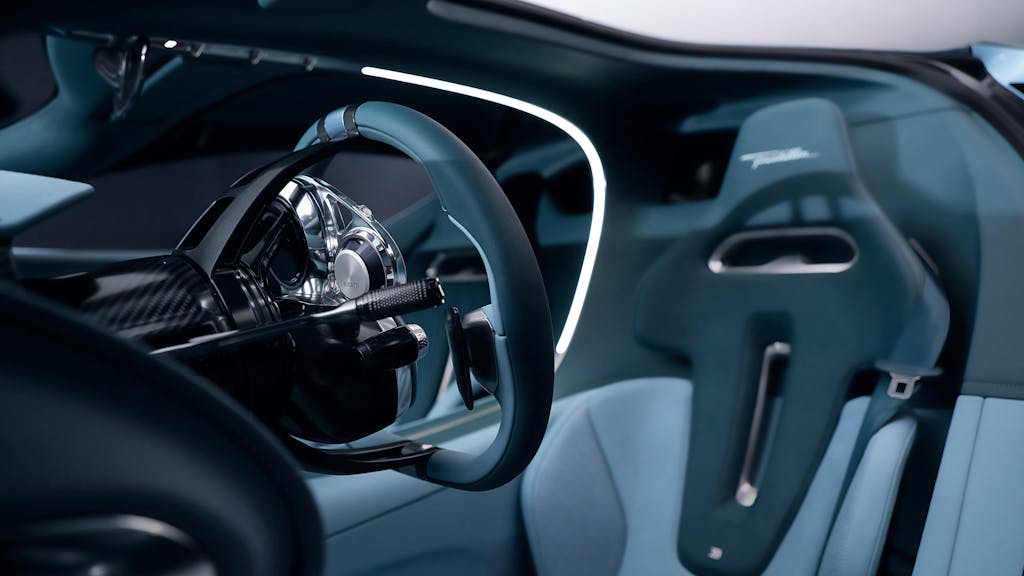
Gone, too, are the Chiron’s speakers. Bugatti replaced them with exciters scattered across the interior that, in its words, make it possible to “use the existing interior panels as speakers.” We look forward to a breakdown of this interesting tech in the near future.
From the engine to the sound system, the level of engineering Bugatti put into developing a successor to the Chiron approaches the surreal. “It’s what Ettore Bugatti would have done,” summed up CEO Mate Rimac.
Bugatti will build 250 units of the Tourbillon by hand in the Atelier it operates next to its picturesque headquarters in Molsheim. Pricing starts at €3.8 million excluding taxes, or approximately £3.1 million at the current conversion rate, and customer deliveries are scheduled to start in 2026.
